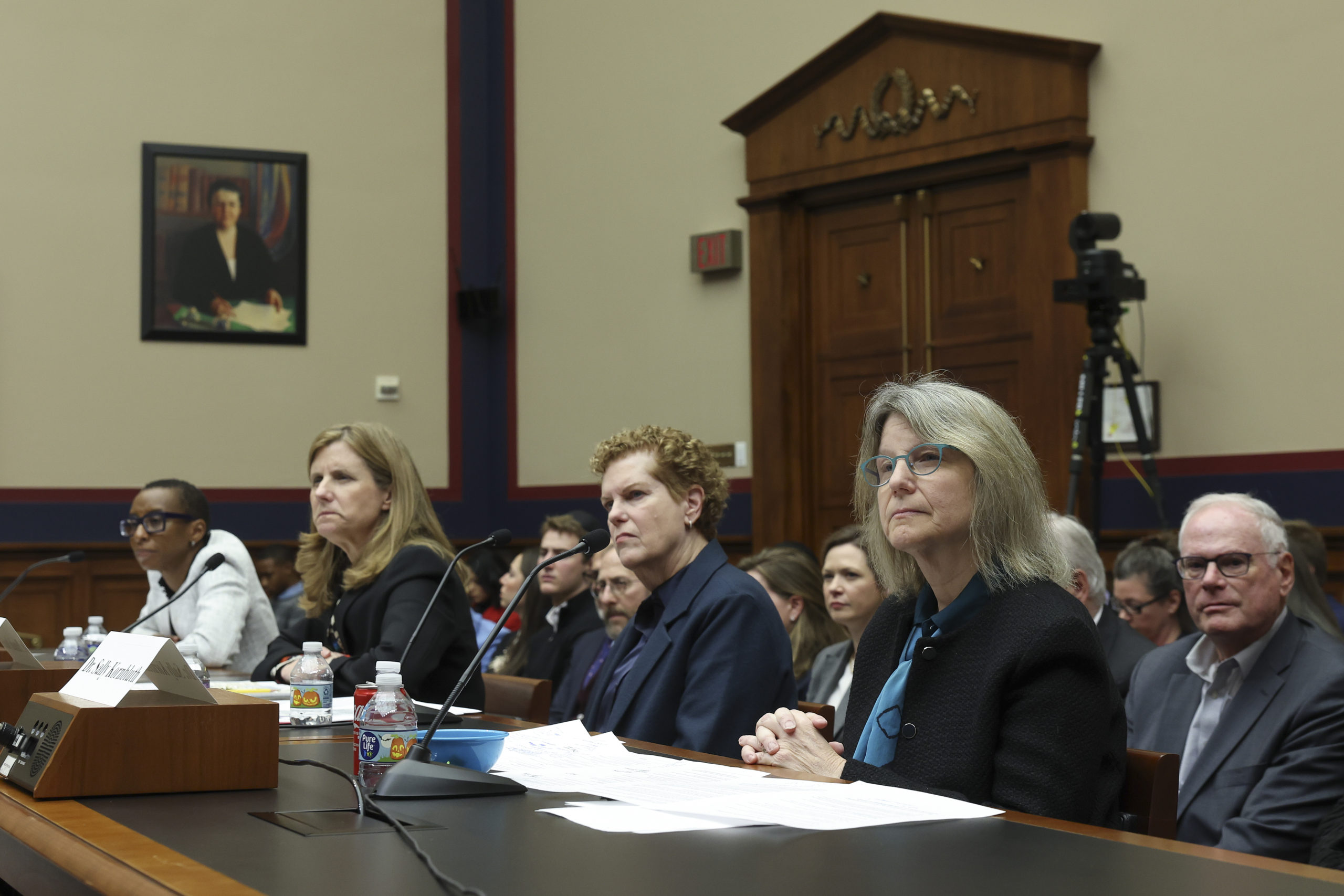The Massachusetts Institute of Technology (MIT) pushed the Biden administration to oppose increased scrutiny of large foreign donations to colleges and universities, newly released emails show.
MIT’s Washington, D.C., office Director David Goldston emailed the Office of Science and Technology Policy (OSTP) in October 2021 with a list of “talking points” advocating against the Committee on Foreign Investment in the United States (CFIUS) being allowed to review university gifts and contracts. (RELATED: The Biden Admin Is Investigating Elite Colleges For Antisemitism — But Don’t Expect Any Repercussions)
READ THE EMAILS:
“Here are some talking points that explain why CFIUS review is a bad idea,” Goldston said before listing objections to the proposal, such as the supposedly vague terms and unclear national security implications.
“This imposes review of some university gifts and contracts without any exploration or indication that such gifts or contracts have damaged the U.S., and without any exploration of the steps universities have taken to review such gifts and contracts themselves,” Goldston’s first talking point asserted.
Goldston previously discussed his concerns with the OSTP and urged the Biden administration to voice its concerns about the CFIUS section, emails show.
READ THE EMAILS:
“If the Administration has problems with the CFIUS section — which it should — it needs to signal that, at least to the majority Committee staff and to Democratic members ASAP,” Goldston said.
“Among other things, I assume the Administration might be concerned about this bill overwhelming the CFIUS process with matters of little national importance,” he added.
Lawmakers were considering a CFIUS review provision for foreign contracts and gifts over $1 million as part of the United States Innovation and Competition Act (USICA), a piece of Senate legislation that ultimately failed. A similar bipartisan bill, the CHIPS and Sciences Act, was signed by President Joe Biden in 2022.
CFIUS is an interagency committee run by the Treasury Department tasked with reviewing foreign transactions and real estate purchases to determine whether they will affect U.S. national security.
The emails were released Friday by Protect the Public’s Trust (PPT), a conservative watchdog that obtained the emails through a Freedom of Information Act (FOIA) public records request.
“The outbreak of blatant antisemitism on many college campuses, including those considered among the most elite, in the wake of an attack against Jewish people revealed something very disturbing at the core of our most revered institutions,” said PPT Director Michael Chamberlain in a statement. “That they have also for years resisted scrutiny from federal overseers prompts a broader discussion about the integrity of our system of higher education.”
In fiscal year 2023, MIT received $84.2 million of gifts from undergraduate and graduate alumni, non-alumni parents and other friends of the university, according to its most recent annual report on giving. Over $17 million of the gifts came from outside sources, compared to about $22 million from graduate school alumni and $40 million from undergraduate alumni.

WASHINGTON, DC – DECEMBER 05: (L-R) Dr. Claudine Gay, President of Harvard University, Liz Magill, President of University of Pennsylvania, Dr. Pamela Nadell, Professor of History and Jewish Studies at American University, and Dr. Sally Kornbluth, President of Massachusetts Institute of Technology, testify before the House Education and Workforce Committee at the Rayburn House Office Building on December 05, 2023 in Washington, DC. The Committee held a hearing to investigate antisemitism on college campuses. (Photo by Kevin Dietsch/Getty Images)
MIT has come under fire for MIT President Sally Kornbluth’s congressional testimony in October about antisemitism on campus in the wake of Hamas’ terrorist assault against Israel on Oct. 7 and the ongoing conflict in Gaza.
A bipartisan group of over 70 lawmakers called on Kornbluth to resign alongside former University of Pennsylvania President Liz Magill and former Harvard President Claudine Gay, whose resignation came after dozens of instances of apparent plagiarism were allegedly discovered in her academic work.
All three college presidents refused to say if calls for genocide against Jews violated each university’s code of conduct. Magill resigned in the wake of her testimony following significant donor backlash.
MIT, Harvard and Penn are under investigation by the House Committee on Education and the Workforce to better understand campus policies and disciplinary procedures in the wake of the congressional testimony about antisemitism on the three campuses. The Biden administration’s Department of Education is also investigating antisemitism at the three universities.
MIT and Goldston did not respond to requests for comment.


